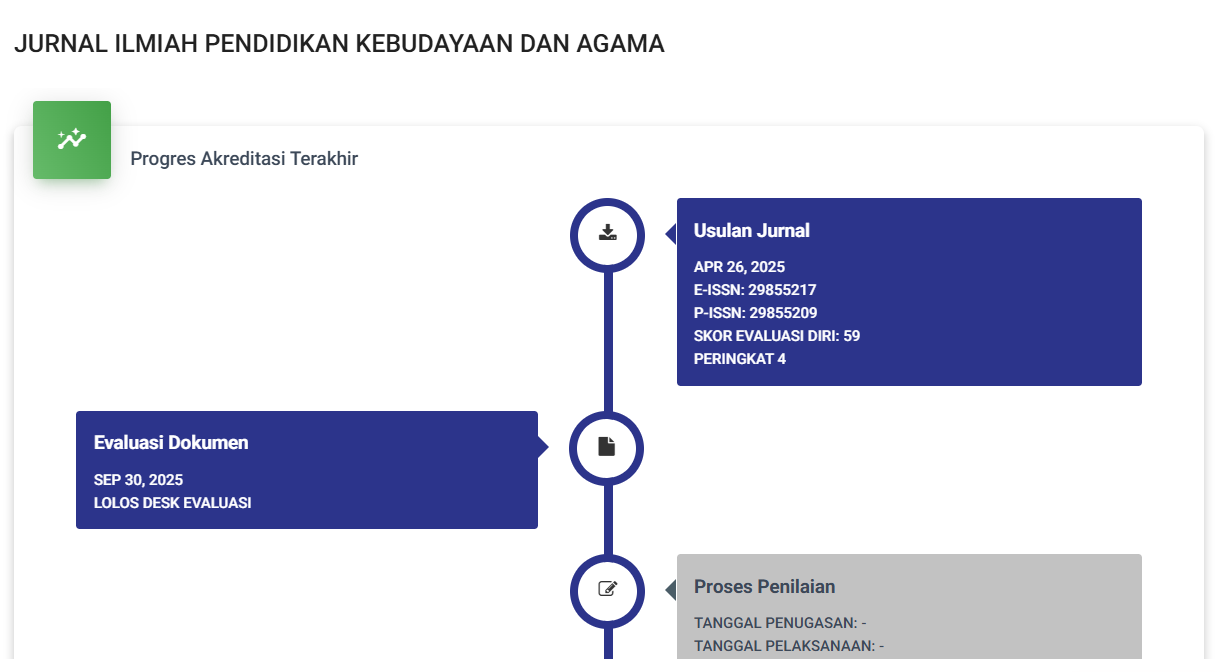The Impact of Fasting on Student's Academic Performance
DOI:
https://doi.org/10.59024/jipa.v2i2.699Keywords:
Ramadan fasting, student, cognitive, academic performance, socio-cultural factorsAbstract
This research explores the impact of Ramadan fasting on student's academic performance and identifies socio-cultural factors and interventions that can mitigate any negative effects. The study investigates three research questions: (1) the impact of fasting on children's cognitive abilities and academic performance, (2) socio-cultural factors influencing the relationship between fasting and academic achievement, and (3) specific strategies or interventions to support fasting children's academic success during Ramadan. A literature review was conducted to examine previous research on the topic, incorporating studies that explored the physiological, psychological, and socio-cultural dimensions of Ramadan fasting among children. The findings highlight the complex relationship between fasting and academic performance, with studies reporting varying effects ranging from negative to neutral or even positive. Socio-cultural factors such as family support, cultural attitudes towards education, dietary habits, school policies, and socio-economic status were identified as influential factors shaping children's experiences during fasting and their academic outcomes. Additionally, several strategies and interventions were identified to mitigate the negative effects of fasting on academic performance, including nutritional guidance, hydration strategies, flexible school policies, supportive school cultures, family involvement, peer support networks, time management skills, emotional well-being support, physical activity opportunities, and continued academic support. These findings underscore the importance of holistic approaches to support fasting children's academic success during Ramadan, addressing their physical, emotional, social, and academic needs.
References
Abukanna, A. M., IbnIdris, H. O., Alenezi, A. M. K., Alshammari, F. N. H., Alanazi, S. H. D., Alenezi, H. F. B., ... & Alanazi, N. N. A. (2022). Effects of Fasting on Student Performance in Exams at Northern Border University, Saudi Arabia. Archives of Pharmacy Practice, 13(4-2022), 82-87.
Ahmad, S., Goel, K., Maroof, K. A., Goel, P., Arif, M., Amir, M., & Abid, M. (2012). Psycho-social behaviour and health benefits of Islamic fasting during the month of Ramadan. Journal of Community Medicine & Health Education, 2(9), 1-4.
Arifin, Z. (2020). Metodologi penelitian pendidikan. Jurnal Al-Hikmah, 1(1).
Ashraf, S. A. (2013). The Inner Meaning of the Islamic Rites: Prayer, Pilgrimage, Fasting, Jihād. In Islamic Spirituality (pp. 111-130). Routledge.
BaHammam, A. S., Almushailhi, K., Pandi‐Perumal, S. R., & Sharif, M. M. (2014). Intermittent fasting during R amadan: does it affect sleep?. Journal of sleep research, 23(1), 35-43.
Beshyah, S., Badi, A., El-Ghul, A., Gabroun, A., Dougman, K., & Eledrisi, M. (2019). The year in “Ramadan Fasting and Health”(2018): a narrative review. Ibnosina Journal of Medicine and Biomedical Sciences, 11(04), 151-170.
Bougrine, H., Cherif, M., Chtourou, H., & Souissi, N. (2023). Does Ramadan intermittent fasting affect the intraday variations of cognitive and high-intensity short-term maximal performances in young female handball players?. Biological Rhythm Research, 54(4), 399-418.
Cay, M., Senol, D., Cuglan, S., Cevirgen, F., & Ozbag, D. (2018). Evaluating of the effects of ramadan fasting on ankle proprioception performance. Ann Med Res, 25(2), 207-210.
Cherif, A., Roelands, B., Meeusen, R., & Chamari, K. (2016). Effects of intermittent fasting, caloric restriction, and Ramadan intermittent fasting on cognitive performance at rest and during exercise in adults. Sports medicine, 46, 35-47.
Erdem, O. (2018). The investigation of the effects of Ramadan fasting on the mood state of healthy volunteer persons. Family Practice and Palliative Care, 3(1), 1-6.
Firmansyah, M. A. (2015). Pengaruh Puasa Ramadhan pada Beberapa Kondisi Kesehatan. Cermin Dunia Kedokteran, 42(7), 510-515.
Farooq, A., Herrera, C. P., Almudahka, F., & Mansour, R. (2015). A prospective study of the physiological and neurobehavioral effects of Ramadan fasting in preteen and teenage boys. Journal of the Academy of Nutrition and Dietetics, 115(6), 889-897.
Heckman, J. J., & Rubinstein, Y. (2001). The importance of noncognitive skills: Lessons from the GED testing program. American economic review, 91(2), 145-149.
Hornung, E., Schwerdt, G., & Strazzeri, M. (2023). Religious practice and student performance: Evidence from Ramadan fasting. Journal of economic behavior & organization, 205, 100-119.
Jones-Ahmed, L. (2022). Isolation, community and spirituality: British Muslim experiences of Ramadan in lockdown. Religions, 13(1), 74.
Miladi, A., Saafi, M. A., & Latiri, I. (2024). Effects of Ramadan on cognitive functions in young boys. Libyan Journal of Medicine, 19(1), 2301830.
Mohamed, K., Al-Abdulrazzaq, D., Fayed, A., El Busairi, E., Al Shawaf, F., Abdul-Rasoul, M., & Shaltout, A. A. (2019). Fasting during the holy month of Ramadan among older children and adolescents with type 1 diabetes in Kuwait. Journal of Pediatric Endocrinology and Metabolism, 32(8), 843-849.
Pollitt, E., Leibel, R. L., & Greenfield, D. (1981). Brief fasting, stress, and cognition in children. The American journal of clinical nutrition, 34(8), 1526-1533.
Qasrawi, S. O., Pandi-Perumal, S. R., & BaHammam, A. S. (2017). The effect of intermittent fasting during Ramadan on sleep, sleepiness, cognitive function, and circadian rhythm. Sleep and Breathing, 21, 577-586.
Tian, H. H., Aziz, A. R., Png, W., Wahid, M. F., Yeo, D., & Png, A. L. C. (2011). Effects of fasting during Ramadan month on cognitive function in Muslim athletes. Asian Journal of Sports Medicine, 2(3), 145.
Downloads
Published
Issue
Section
License
Copyright (c) 2024 JURNAL ILMIAH PENDIDIKAN KEBUDAYAAN DAN AGAMA

This work is licensed under a Creative Commons Attribution-ShareAlike 4.0 International License.










